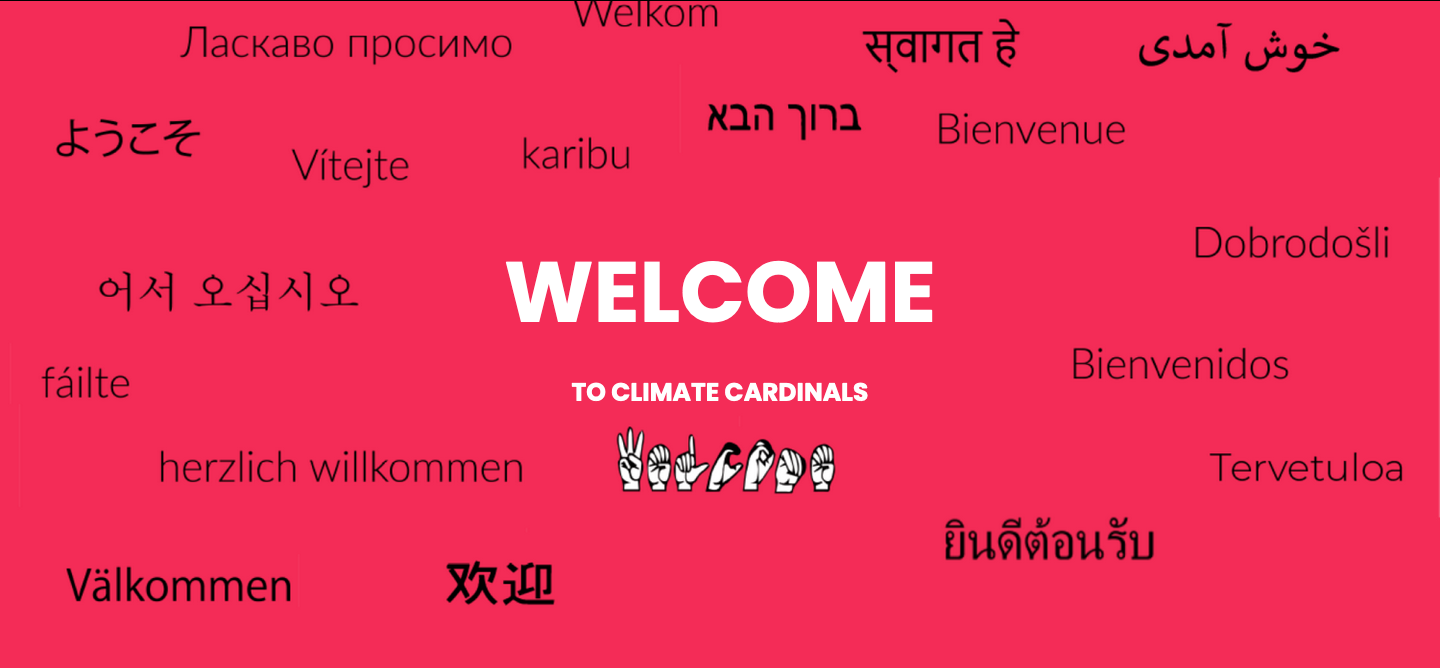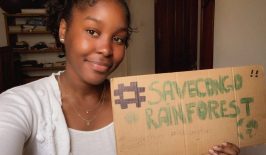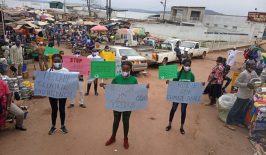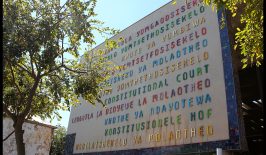The people who are most affected by climate change are often the least able to access information about it. Climate Cardinals, a new youth-led volunteer organisation, is seeking to change that – by translating crucial climate change resources into over 100 different languages.
The vast majority of climate research and literature is published in English, as well as a sprinkling in other major languages like Chinese and Spanish. If, however, you happen to speak, say, Swahili or Marathi, you’d probably be hard-pressed to find a lot of information around the topic. This is a problem because over 50% of the world’s population does not speak any English, and a lack of information means a lack of awareness. Climate activism isn’t something that’s unique to the English-speaking world (RESET has talked to environmental activists from all over the globe in our Voices of Climate Justice interview series), but when it comes to the numbers, widespread and mainstream civil society action on climate change does still seem to be concentrated in the West.
By way of an example, there are currently 812 Extinction Rebellion groups in Europe, compared with merely 23 in the entirety of Africa – and even those appear to be concentrated in countries where English is spoken as the national second language. And the climate activists we talked to in Pakistan and Senegal were particularly vocal about the lack of awareness about the climate crisis among the local population – in part caused by the lack of access to reliable climate information. And how can you educate and empower a diverse coalition of people to tackle the climate crisis when there’s not enough information available in a language they can understand?
Sophia Kianni became aware of the problem when she went to visit her family in Iran. She was shocked to find it so choked with air pollution that she couldn’t see the stars at night. Moreover, she discovered that the Middle East is currently facing some of the fiercest environmental conditions as a result of climate change, with average temperatures more than twice the global average. However when she brought up these concerns with her relatives, she was surprised to find they knew nothing about climate change. She was unable to find information online for them to read in their native Farsi, and ended up having to do the translations herself. As a result of this experience, she went on to found Climate Cardinals in May this year.
Providing climate information to those underserved and most affected
“Our major objective is to make climate information as accessible as possible, because there is such a big issue of inaccessibility within the climate movement,” says Rohan Arora, who is the executive director of Research and Development for the organisation. They do this in a number of ways, including translating essential climate information into numerous languages that have, as yet, been underserved when it comes to climate change information and reporting. “The issue is most research around climate stems from a few major institutions – they have a monopoly almost. And these institutions are not publishing research in those languages where a lot of climate justice issues actually play out – as climate issues disproportionately impact people of colour from non-English speaking countries,” explains Arora.
The translators, who are based all across the world, are mostly youth volunteers rather than professional linguists. This way, Arora argues, the organisation generates translations that relate to local environmental concerns – a strategy which helps to drive engagement – and helps “lift up youth voices in the process.” Meanwhile, the parent organisation, based in the US, in partnership with Translators Without Borders and Respond Crisis, does a lot of translation work with a global scope, and checks over the local translations for factual and linguistic accuracy.
Their focus is on translating short and simply written fact sheets, manifestos, and glossaries as opposed to raw research, because “people may not have the willingness or capacity to start out by reading a 20 page paper. We don’t want it to be like school!” says Arora. For instance, they recently finished translating a Condé Nast Climate Emergency Glossary into numerous languages – which gives definitions of key terms such as “decarbonisation”, “deforestation”, “microplastics – and are now doing outreach to spread it far and wide.
Beyond translations, they also focus on building strategic partnerships with other organisations, such as with the UNEP and UNICEF, as well as embassies, radio stations and local organisations like the Arab Youth Climate Movement. Through these partners they aim to increase the reach of their messaging, but the relationship is symbiotic. “We want to focus on our niche, but also be able to amplify people that are doing great work already,” says Arora.
Another unique thing about this organisation is that it is youth-focussed and youth-led. This comes from a desire to lift up youth voices, as well as a recognition that youth are often the most willing to engage in the climate movement – making it a great way to start their operations and grow their reach quickly. And grow quickly they have done.
In just a few short months since their founding on May 24th, they have reached over 300,000 people in 41 countries, developed a core team of 300 people, and recruited 6000 volunteers worldwide. One of the key aspects of their success is their shrewd use of social media. They launched a channel on TikTok, which is very popular amongst their key demographic, and created a viral video that gained them over 1000 volunteer sign ups on their first day. They also adapted well to the challenges posed by the pandemic, and began offering virtual volunteering options to students at a time when other volunteering opportunities had dried up.
Their core team, however, is based on the US, and it will undoubtedly be challenging to establish a genuine presence in non-Western countries, especially those where internet access is limited. Nevertheless, their initial steps seem to be pointing in the right direction – beyond online outreach, they have been signing up new chapters and directors across the globe. “We know youth can lead,” Arora claims, and indeed, this seems to be the case. They have already proved themselves to be innovators who adapt quickly to challenges. Want to join the team working to make the climate movement more accessible to those who don’t speak English? You can sign up to become a Climate Cardinal on their website here.





